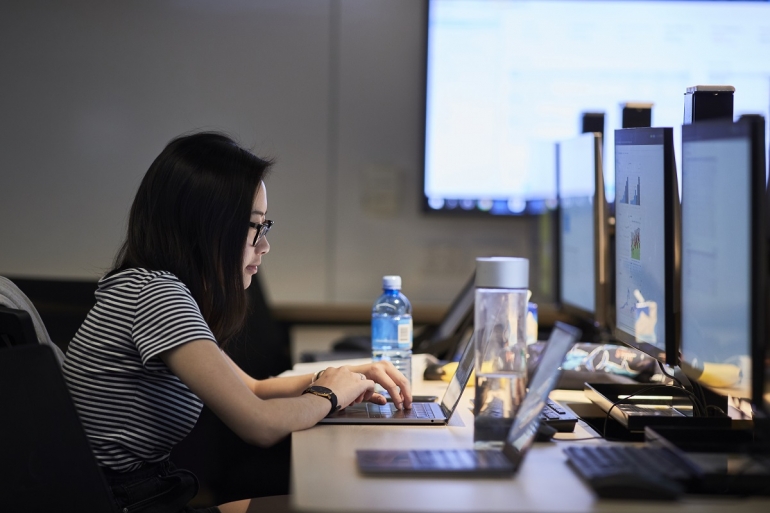Written by: Professor Alex Steel, Director Teaching Strategy
In 2020 UNSW became, overnight, a digital university. Within weeks that meant we had to conduct our assessments fully online. Online open book, open web, assessment was something new to most people. We scrambled to find ways to do this. For most the answer was found in writing assessments in Moodle Quiz or in Moodle Assignment. Others used a range of specialist software. There were some issues around academic integrity, and some problems with technical failures. But overwhelmingly, we succeeded. The students were not significantly disadvantaged, many thrived, and we all learnt new digital skills.
This was an emergency response. It is not an approach that can continue long-term. We need to preserve from 2020 the new approaches that have succeeded and build sustainable processes to enable them to become mainstream. So, what have we learnt?
We know that students really, really, don’t want to go back to doing exams in stressful exam halls. They are even more against remote proctoring. We know that using the full range of technology available in the workforce and incorporating audio-visual stimuli can create much more authentic assessment. But we also know that this sort of assessment is harder to write than simple knowledge-based questions – and we need to be clever about how we set assessment to avoid creating increased marking burdens. We also need to work to find ways to build academic integrity measures into how we design our assessment.
Administratively, it’s clear that we need to avoid putting the running of high stakes assessment onto academics and School professional staff. This is not only a workload issue, it is also one of exam question security, consistency of student experience and student support – not to mention compliance requirements.
In policy terms this means we will continue to reject remote proctoring as an integrity solution, as we have done since the earliest days of the COVID crisis. It is a flawed ‘fix’ that fails to properly replicate invigilation and causes significant privacy concerns and it is considered a last resort by TEQSA. We will predominantly assess remotely, and we will ensure our curriculum rules encourage the development of innovative, authentic forms of digital assessment that accurately demonstrate our students’ achievements.
So, 2021’s big tasks will be to build sustainable systems that allow us to continue to offer remote assessment and to mark it efficiently. We need to consolidate our understanding of new approaches that improve the student assessment experience – sharing best practice, setting standards, linking items of assessment into a bigger holistic demonstration of student attainment (including through e-portfolios). In doing this we need to consider seriously how to ensure academic integrity – not so much on a test-by-test basis, but across a whole program. Through all of this, the touchpoint has to be, “How does this change improve the student’s experience?”
Assessment should enhance learning, not detract from it.
Ultimately, our goal should be that students have confidence that the assessments they undertake and the feedback they receive will enable them to make significant gains in their learning. They should see individual assessment exercises as constitutive elements of a “whole of experience” record of the knowledge and skills they have acquired during their time with us. This record should be a meaningful artefact that students can continue to reflect on, whether it is through a lifelong learning journey, or sharing with employers, family and friends.
UNSW is privileged to have some of the most committed and innovative teachers in Australia, across all our disciplines. Our mission next year is to develop assessment practices that are equally inspiring and which match the aspiration of our students and educators.
